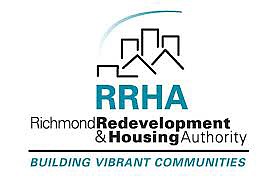Jackson Ward hotel project dies after dispute with RRHA over land price
Jeremy M. Lazarus | 11/5/2020, 6 p.m.
In the summer of 2019, the Richmond Redevelopment and Housing Authority awarded a Black-led development team the right to build a 115-room hotel, at least 63 apartments and a retail store on 3.4 acres in Jackson Ward.
But a year later, RRHA has pulled the plug on the $35 million project that had passed muster with the community’s civic group, the Historic Jackson Ward Association, and would have been one of the largest that an African-American company would have undertaken in Richmond.
The project was to go in the block in which Club 533, a longtime African-American social club, is located. The site is bounded by Interstate 95 and Jackson, 2nd and 3rd streets.
Lead developer Michael A. “Mike” Hopkins, who has filed formal complaints against RRHA for refusing to proceed, declined to comment on the collapse of a project.
In documents obtained by the Free Press, RRHA’s general counsel, Cory J. Wolf, stated that the “COVID-19 pandemic has called into question many of RRHA’s development priorities. With market conditions and the needs of Jackson Ward community members in such a state of flux, RRHA no longer feels confident that the development of a hotel and market-rate housing best serves our priorities.”
However, the documents show the key issue involved a dispute over the price of the land.
Mr. Hopkins and his partners would not accept RRHA’s demand that his group pay $4.1 million for the vacant property, or about $1.2 million per acre.
Land prices in the historically Black section of Downtown have been rising, but RRHA’s price tag apparently would have set a new record for that section of the city. Records show the price also would have represented a 130 percent increase over the $519,841 per acre the authority charged other developers, including a nonprofit that has just completed a 154-unit apartment complex. City assessment records indicate land in Jackson Ward currently is valued at $690,000 to $720,000 an acre.
Mr. Hopkins wrote that RRHA’s insistence on such a high price would contribute to gentrification of the area.
“As we are all aware,” he stated, “overvaluing property adversely affects existing residents’ tax liability, which disproportionately drives out African-American property owners.”
The documents show that Mr. Hopkins countered with an offer of around $700,000 an acre, but RRHA refused to budge and pulled the award in June while Terese Walton was serving as RRHA’s interim chief executive officer.
The decision was made internally without any apparent consultation with or vote by the appointed RRHA Board of Commissioners that is charged with governing the authority.
Recently appointed commissioners expressed concern to the Free Press that the RRHA administration has assumed too much authority over decision-making and that reform is needed.
The RRHA decision also ended a project that had set out ambitious goals for inclusion.
In the documents, Mr. Hopkins wrote, “The project set a new prec- edent for minority business inclusion and community benefit.”
He stated that African-Americans would have been involved in all phases of the project, ranging from design and building to legal, insurance and accounting aspects and the provision of hotel artwork.
His group also planned to a have a job training program focused on ensuring city residents could gain construction work or be prepared for hotel work. He also stated there would have been a “robust Section 3 initiative” to ensure inclusion of smaller, minority-owned firms.








